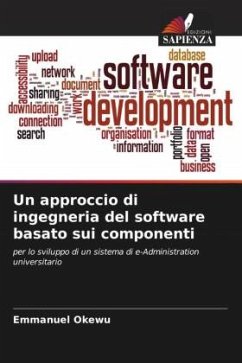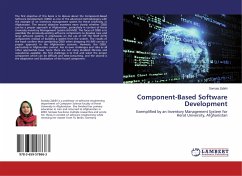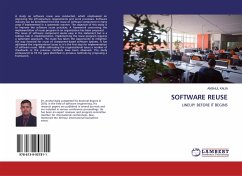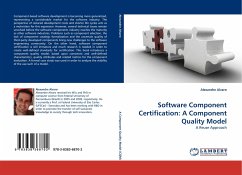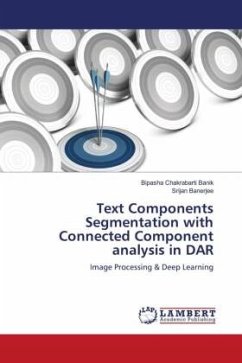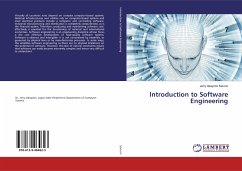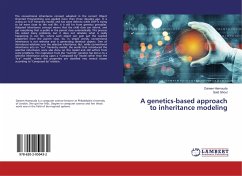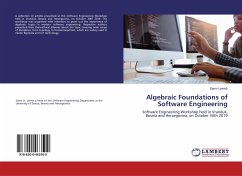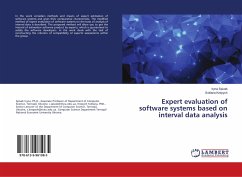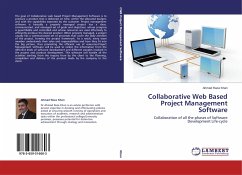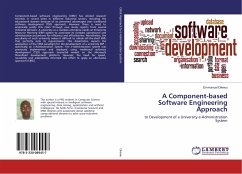
A Component-based Software Engineering Approach
to Development of a University e-Administration System
Versandkostenfrei!
Versandfertig in 6-10 Tagen
37,99 €
inkl. MwSt.

PAYBACK Punkte
19 °P sammeln!
Component-based software engineering (CBSE) has elicited research interests in recent times in different industrial sectors, including the educational domain because of its perceived advantages over traditional software development (TSD) approach. However, there is need to empirically justify this claim through case study reports from several industrial domains. A university as a complex enterprise needs an Enterprise Resource Planning (ERP) system to automate its complex operational and administrative procedures for efficiency and effectiveness. Nonetheless, the peculiarity of each university...
Component-based software engineering (CBSE) has elicited research interests in recent times in different industrial sectors, including the educational domain because of its perceived advantages over traditional software development (TSD) approach. However, there is need to empirically justify this claim through case study reports from several industrial domains. A university as a complex enterprise needs an Enterprise Resource Planning (ERP) system to automate its complex operational and administrative procedures for efficiency and effectiveness. Nonetheless, the peculiarity of each university makes it difficult to obtain off-the-shelf ERPs that perfectly suits its requirements. This dissertation reports the application of the CBSE paradigm for the development of a university ERP - specifically an e-Administration System. The e-Administration system was previously implemented and deployed using traditional software development (TSD) approach (waterfall model) on the Microsoft SharePoint development platform. However, the need for speed, reusability and adaptability informed this effort to apply an alternative approach (CBSE).



